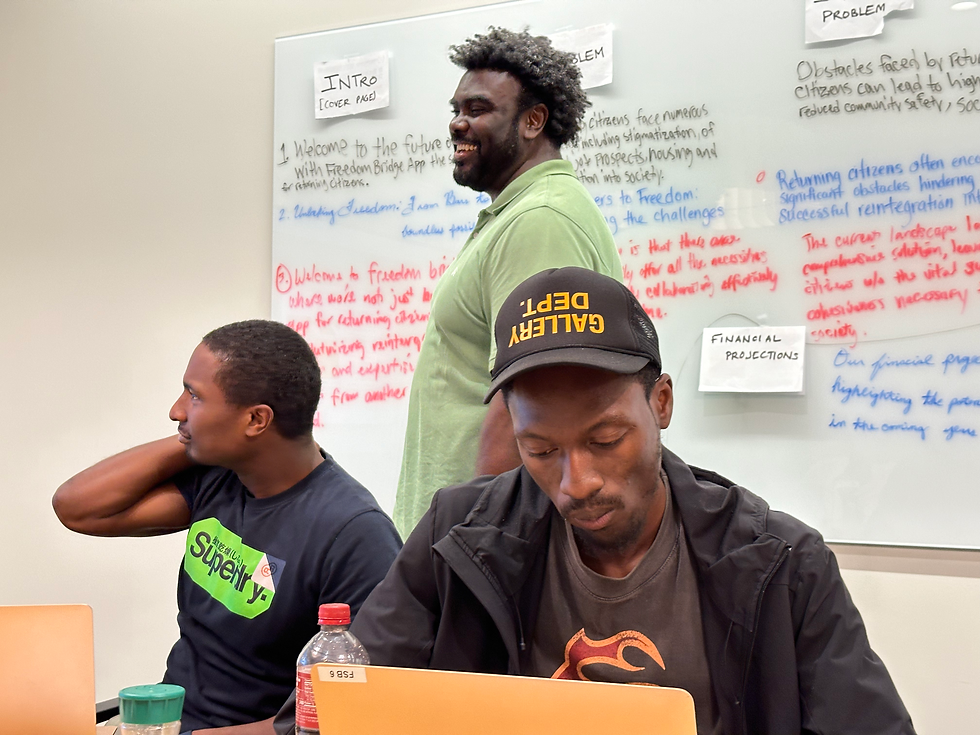MLK DAY 2021: Where Do We Go From Here?
- Jerome Debro
- Jan 18, 2021
- 3 min read
Updated: Feb 10, 2023

"Injustice anywhere is a threat to justice everywhere. We are caught in an inescapable network of mutuality, tied in a single garment of destiny. Whatever affects one directly, affects all indirectly.” Ironically, Dr. King wrote this while he was incarcerated in Birmingham, Alabama. 57 years have passed since the passage of the 1964 Civil Rights Act and despite all the hard-fought efforts of Dr. King and others during one of the largest social justice movements of our time, we couldn’t be more divided.
Did King’s dream imagine an America that would place more African Americans under the control of the criminal justice system, or continue racial bias that would only worsen police brutality in this country? The stench of Jim Crow plagued King’s generation then and unfortunately its unpleasant odor is choking the black community now. Of the seven million Americans imprisoned, African Americans comprise forty percent; roughly three million people. These numbers are disproportionately glaring considering African Americans only make up 13 percent of the population.
Many do not know that Martin Luther King Jr. was incarcerated 29 times as a result of his work and push for desegregation, voting, and equal rights. He faced great difficulty on the road to freedom. Despite political and legal efforts that tried to silence him by subjecting him to brutality, FBI surveillance, and his eventual assassination, King continued to fight and use his voice earning him a place in history that has served as the blueprint for other leaders looking to carry the torch forward. With all the hard work invested, King may not have ever imagined that he was paving the road for future leaders to fight the negative effects of mass
incarceration otherwise known as the, “New Jim Crow.” One of the worst consequences of mass incarceration is the disfranchisement of African Americans. It is estimated that one of every 13 eligible Afr
ican American is disenfranchised. In her book, The New Jim Crow: Mass Incarceration in the Age of Colorblindness, Michelle Alexander claims that this creates an inequitable impact that relegates African Americans to a permanent second-class. Oddly, before King’s murder in 1968 his focus had shifted more towards fighting inequities and developing a plan to eliminate poverty.
Leaders such as LaTosha Brown and Stacey Abrams have been at the forefront of tackling social justice matters and increasing black voting rights. While King’s dream may have imagined the social justice movement further along in its fight towards equality, he definitely left a blueprint that these ladies leveraged to mobilize voters and deliver the White House to the Democratic Party. As we prepare to commemorate the life and legacy of Dr. King, let us be mindful of both the past and present. The past to learn and remind us where we’ve come from and the present to navigate the way forward. It is incumbent on us to get involved where we can by serving, volunteering, and lending our voices to different needs in our respective communities.
A great way to do this is by participating in MLK’s Day of Service. Those interested in continuing the social justice fight and further voting rights should join the organizations of Brown and Abrams, Black Voters Matter or Fair Fight. Other organizations such as Florida Rights Restoration Coalition(FRRC) and Flikshop are focused on the needs of those directly impacted by mass incarceration. FRRC focuses on the needs of formerly convicted individuals by reducing recidivism and restoring their voting rights. Flikshop has created a program that helps incarcerated individuals stay in touch with their loved ones with the help of technology and community members who want to help these families stay connected.
So, where do we go from here? Injustice exists on many levels and as the fight for justice continues well into the 21stcentury, let us keep the words of Dr. King in our hearts, “Let us be dissatisfied until America will no longer have a high blood pressure of creeds and an anemia of deeds. Let us be dissatisfied until the tragic walls that separate the outer city of wealth and comfort from the inner city of poverty and despair shall be crushed by the battering rams of the forces of justice. Let us be dissatisfied until those who live on the outskirts of hope are brought into the metropolis of daily security.



Comments